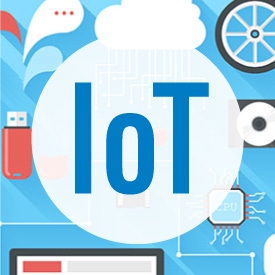
Also in today's EMEA regional roundup: Telefónica reshapes roaming unit; Swiss detects endpoints; Brits turn to video-streaming services to ease pandemic pain.
Orange Business Services, has been chosen by Japanese operator KDDI to provide a customized IoT platform for Toyota and Mazda that will allow the two manufacturers to offer connected-car capabilities in the vehicles they sell across 63 European territories. Orange's connectivity management offering dovetails with KDDI's own IoT platform and, says the French company, offers secure, reliable IoT connectivity that improves the driver experience. Cloud connections between the two platforms are made using Orange backbone networks.
Telefónica has decided to integrate its wholesale, roaming and multinational customers businesses under a new unit and a single identity: Telefónica Global Solutions. The new unit will serve more than 1,500 customers around the world in 170 countries through 400 roaming agreements and other partnerships.
Meanwhile, back on the domestic front, Telefónica Spain has chosen Juniper Networks to secure the backhaul of its nascent 5G network.
Swisscom is launching a new managed security service for businesses which is based on Endpoint Detection & Response (EDR) technology. EDR, says Swissom, analyzes device behavior, looking out for anomalies, though the operator stresses that it needs to be integrated into existing security processes to be effective.
Forty-six percent of UK viewers signed up to additional video streaming services during the pandemic as they were forced to stay home more, according to a "State of Online Video 2020" report from Limelight Networks. According to the report, UK viewers spent an average of 7 hours, 24 minutes watching online video per week in 2020, with user-generated content steadily increasing in popularity.
Estonia-based Fortumo says it has successfully migrated mobile operator Three Ireland on its direct carrier billing platform. This means that merchants affiliated to Fortumo can now collect payments for games, in-app content and digital services from more than 2 million Three Ireland subscribers by charging purchases to their postpaid phone bill or prepaid SIM card.
Croatian operator A1 Hrvatska is building a new data center in Zagreb. The facility, representing an investment of €11 million (US$12.9 million), will use the latest cooling, power and security systems and be built to withstand earthquakes up to magnitude 9 on the Richter scale (Zagreb suffered an earthquake in March).
The Independent Networks Cooperative Association (INCA) says investment momentum in the UK's "challenger" network sector must be maintained if the goal of a "Gigabit Britain" is to be truly realized. INCA commissioned a report from Point Topic which showed that more than £1.76 billion ($2.27 billion) worth of private funding related to the independent sector was announced between the start of 2019 and September 2020. While welcoming these numbers, INCA CEO Malcolm Corbett said in a statement: "To ensure that this momentum builds, it's crucial that these operators are supported, particularly in rural areas, ensuring that the Government's Outside-In funding policy succeeds and that all communities benefit from new digital infrastructure."
Finland's Nokia has teamed up with New Zealand operator Spark to launch 5G services in Auckland to coincide with a major international sailing event. The box of tricks supplied by Nokia includes its NetAct product, which manages both radio and core networks, and provides applications that oversee fault, configuration, performance and security management.
— Paul Rainford, Assistant Editor, Europe, Light Reading
Read more about:
EuropeAbout the Author(s)
You May Also Like




_International_Software_Products.jpeg?width=300&auto=webp&quality=80&disable=upscale)







